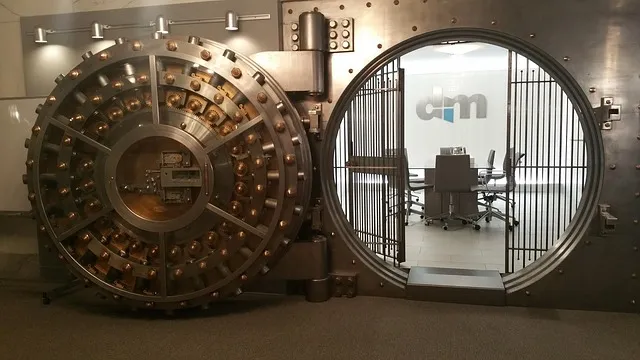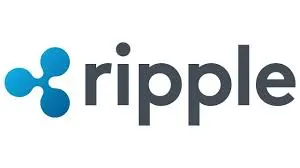There’s a lot of chatter these days about what the future is for Ripple-Is it on a stable foundation? Are they in bed with the banks-Is it sustainable? Did banks create Ripple and do they own it?
Well, these are very valid concerns, and nobody knows the future, but if you’ve been on the frontlines and worked in many areas of business including the one Ripple is trying to infiltrate, you may leave with a different perspective after this article.

Obviously, many of you know that expenses are the 500lb gorilla in the room when it comes to running a business. And with prices going up for healthcare, shipping, transaction fees and marketing; these companies are looking for new and innovative ways to cut these costs while still being secure and efficient
Ripple focuses on the money transfer and transacting aspect of business, particularly with the banks that transfer billions and sometimes trillions internationally worldwide every year. This is why I believe Ripple wanted to focus on one area of businesses that they could gain market share in and build partnerships with companies that were connected worldwide
Anyone that has dealt with the issue of transactions fees and slow response times knows how burdensome and expensive it can get. The most popular form of money transfer for retail companies and banks is ACH and it can sometimes take 3-5 days to post. Fortunately, Ripple has designed a system that does this more efficiently and for a fraction of the cost.
( )
)
I’ve worked in the Retail and Financial sector for over 2 decades and I can’t tell you how many times the companies that I’ve worked for have changed and switched companies and services that will help them save money in this area. In fact, the company I currently work for owned their own bank which allowed them to create their own debit card. This move cut out the middleman (Visa –Mastercard) so they didn’t have to pay transaction or exchange fees. It worked like a charm but became too expensive to own a bank so they eventually had to stop offering it.
This is a great example of how companies struggling with expenses in this area will try to cut costs. Now with this new technology being presented by companies like Ripple, it will definitely spark some interest and allow them to transact at a fraction of the cost. I believe this is why up to 74 banks and counting have got on board with their block chain network services.
I can tell you with certainty that fortune 500 companies including banks will not commit to something that they don’t believe will work in helping them save money; especially in the retail industry where cash is a distant memory and online sales are beginning to make up a much larger percentage of their profit margins.

In fact the Ripple just announced that the US Federal Reserve joined a task force testing this technology and came to the conclusion that Ripple offers a reliable service. Here is a quote from Ripples website:
“Today, after two years of work, the Federal Reserve released its Faster Payments Task Force’s action plan for bringing faster payments to the United States, highlighting Ripple’s ability to underpin the next generation of cross-border payments.
Set up in 2015 after the Fed recognized the need to spur improvements in payments, the Task Force brought together a diverse group of 320 stakeholders – including banks, regulators, end users and technology companies – to create a road map for modernizing the U.S. payments infrastructure.
One of the Task Force’s first achievements was to establish a set of effective criteria for faster payments. This served as a long-term target for new solutions, defining the capabilities needed to meet the market demands of 2020 and beyond. This framework includes 36 criteria, grouped into six categories —speed, efficiency, safety and security, legal, governance, and ubiquity – with over 100 detailed benchmarks for each. True to being a future vision, no existing solution meets all of the criteria.”

To anyone that doesn’t understand just how hard it is to get the government on board with anything, especially when it comes to moving large amounts of money domestically and internationally; THIS IS A HUGE ACHEIVMENT.
There have also been many concerns about banks getting involved with Ripple since of course crypto currencies were ultimately designed to distance themselves from the existing banking and fiat currency structure that we have today. Many believe in some strange way, that the banks designed Ripple and own all XRP tokens, and that there is some boogie man located in the dark bottom floors of the banks ready to hoard and destroy every cryptocurrency created-but this just isn’t the case.
Last time I checked, Ripple owns about 70 percent of the coins in circulation. The banks only purchase XRP from Ripple to facilitate the transaction and are then destroyed. This also prevents the burdensome spam attacks on the network.
One key aspect of XRP (Ripples currency or coin), is that it has a set amount of coins available. Many short term investors are turned off or worried by this, but this will ensure modest inflation which the banks and merchants it contracts with like to see. They do not want to see extremely wild fluctuations when running a business. Unfortunately, this can make XRP’s price swings less volatile, but if you’re looking for a long term investment with steady solid growth over time, this may be a solid winner.

Many investors are also concerned about Ripple dumping huge amounts of XRP into the market, but they recently just announced they will place up to 55 Billion XRP into escrow to calm these fears. Below is another quote from their site:
“Today we are permanently removing that uncertainty by committing to place 55 billion XRP into a cryptographically-secured escrow account by the end of 2017. By securing the lion’s share of our XRP, investors can now mathematically verify the maximum supply of XRP that can enter the market”

With over 70 banks already signed up they are light years ahead of any other teams trying to build relationships with these merchants and financial institutions. I’m cognizant of the fact that many are already trying, but Ripple has really done its homework and has been on the front lines in this area.
Ultimately, investors should do their homework and learn what Ripples goal is while ignoring the scare tactics many competitors and pump and dump speculators post online.
We still don’t know how these companies will perform or if they will keep on track when it comes to their vision and implementing their white page outlines, but if you have some money to speculate and invest with; Ripple may provide a handsome return on your investment in the future.
Photos provided by Pixabay